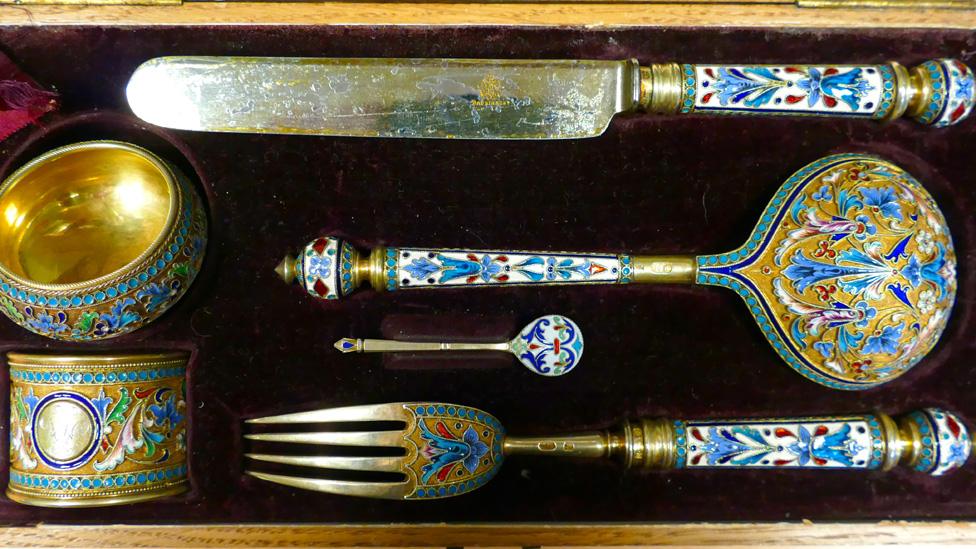Russian Revolution inspires Welsh cultural season
- Published
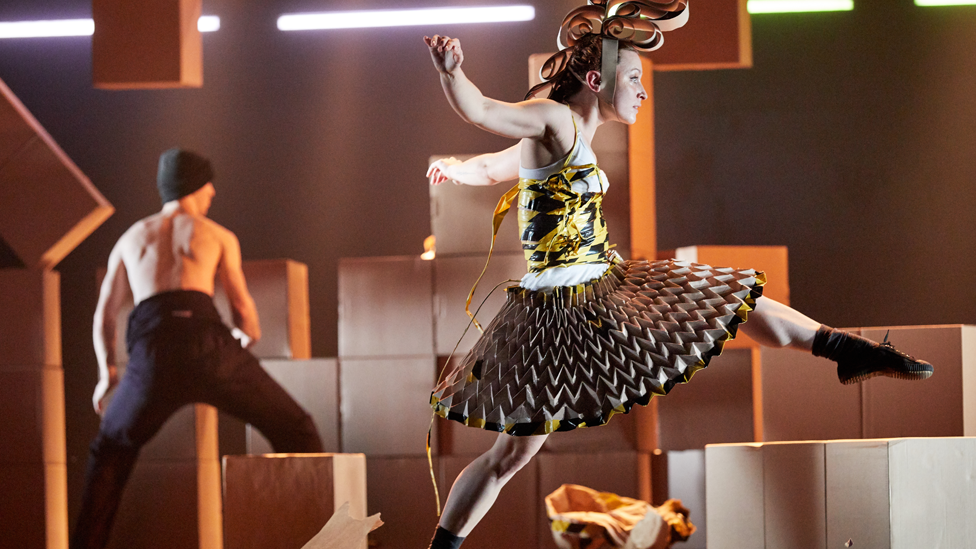
The National Dance Company Wales will perform in both Cardiff and Bangor
Welsh opera, dance and theatre companies are marking 100 years since the Russian Revolution.
The R17 series, external of events includes the re-staging of a celebrated 1917 ballet and a season of Russian operas.
The organisers say the communist revolution, which overthrew the Tsar, was a critical cultural moment that inspired artists to create new works in Russia and beyond.
Despite the political nature of the revolution, Welsh arts companies say they are remaining neutral by focusing on artistic works inspired by the events.
National Dance Company Wales, external (NDCW) and the BBC National Orchestra of Wales are staging a performance of P.A.R.A.D.E. at Wales Millennium Centre, which will tour to Bangor.
The ballet was first performed in Paris in 1917 and included music by Erik Satie and costumes by Pablo Picasso.
The 2017 version has been re-imagined for the modern era, and uses spaces around the theatre as well as the main stage.
Meanwhile Welsh National Opera, external has focussed its autumn season on Russian works, including Tchaikovsky's Eugene Onegin and Janáček's From the House of the Dead, based on the book by Dostoevsky.

Natalya Romaniw (Tatyana) and Nicholas Lester (Onegin) in the Welsh National Opera's Eugene Onegin
Chief executive of NDCW Paul Kaynes said the anniversary was an opportunity to revisit some influential works.
He said: "We wanted to look back at this incredible moment in time when all of these incredible artists were making new work, and to bring that to life for people here in Wales.
"And of course there were links between Wales and Russia at the time. There was an interest in what was happening in Russia."
In the south Wales valleys the Russian revolution was viewed with enthusiasm by some, where the industrial revolution had exposed stark divides between the working classes and the owners of the mines and ironworks.
The admiration led to Maerdy in Rhondda being nicknamed Little Moscow on account of its socialist sympathies and for producing trade unionists such as Arthur Horner, a founding member of the Communist Party of Great Britain.
Russian Revolution was 'enormously appealing' to Welsh workers, says Kim Howells
Kim Howells is a former Foreign Office minister and was MP for Pontypridd until 2010. He was a communist in his early political life after growing up in Penywaun near Aberdare.
He said the Russian Revolution of 1917 came at a pivotal time for the south Wales coalfield: "The heart of the valleys was already a radical place, it was already one of the most proletarian places in the world.
"There was a small middle class, but these were mostly coal miners, iron workers, people who worked on the railways, and they were very receptive to news that suddenly the bosses and tyrants had been overthrown. The news that there was a revolution in Russia brought enormous enthusiasm."
Despite his own flirtation with communism, it was a politics he would eventually abandon.
"It took a long time for me to realise that it was democracy that counted, and that's what would sustain the right kind of change and sustain society in general," he added.
"But for a very long time that notion of Soviet revolution was a very potent one."
While support for communism in the valleys has largely evaporated, its great Russian influence has also abandoned the strong socialist principles it introduced in 1917.
The Russian conductor Valery Gergiev is a patron of the Welsh cultural season marking the revolution.
He said 1917's events had cut many artistic careers short, and changed the world's musical narrative.
"Some (artists) were disappearing. They perished in these tragic, tragic events," he said.
"But many great musicians after the revolution of 1917 ended up living in Europe or the USA. This was changing the course of musical history in the 20th Century quite strongly."
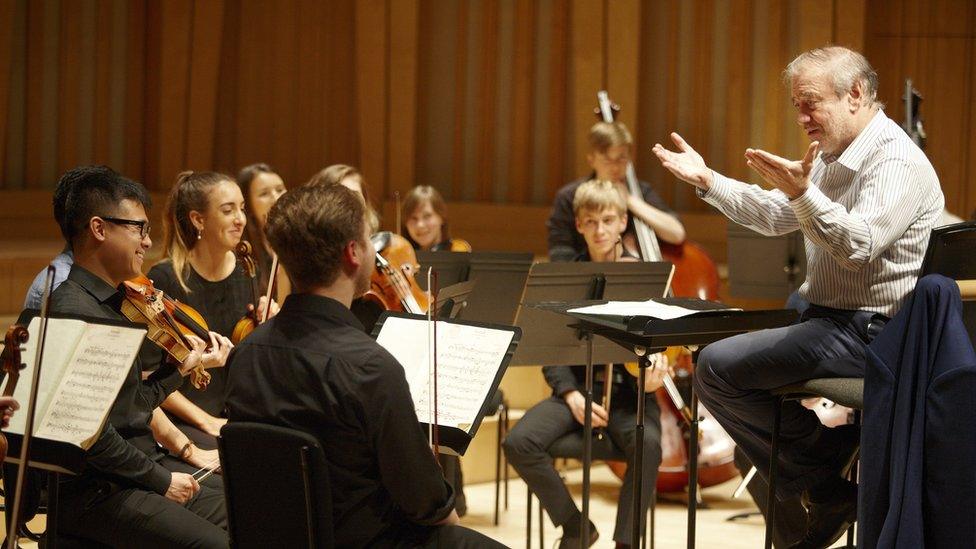
Valery Gergiev conducting a masterclass
As part of the season of events, Gergiev led a masterclass with students at the Royal Welsh College of Music and Drama and conducted the Mariinsky Stradivarius Ensemble in the college's Dora Stoutzker Hall.
Since the 1970s Gergiev has been associated with the Mariinsky Theatre in Saint Petersburg, known as the Kirov during the Soviet era.
He witnessed the collapse of the communist regime, and is said to be close to President Vladimir Putin. A century since the uprising that overthrew the establishment and heralded decades of communist rule, Gergiev is hesitant about the potential for future rebellions.
In 1917, he said, "brother was killing brother. Neighbour was killing neighbour. It's a tragic, tragic part of Russian history, even if you consider many centuries.
"Today nothing like this exists, and I don't think it can suddenly be introduced to the life of modern Russia."
And Gergiev said Russian culture had changed, to the detriment of its musical future.
"The good example to follow now is the owner of Chelsea football club, who is my good friend, Roman Abramovich," he said.
"So they think, for their son, it would be good to go into business.
"And if you tell them: 'Yes, but you also could see if your son or daughter will study classical music, or become a ballerina?' Some will say 'fantastic,' but many will say 'these musicians, they earn nothing'."
Audiences across Wales can continue to enjoy events inspired by the Russian revolution until the end of the year.
- Published16 October 2017
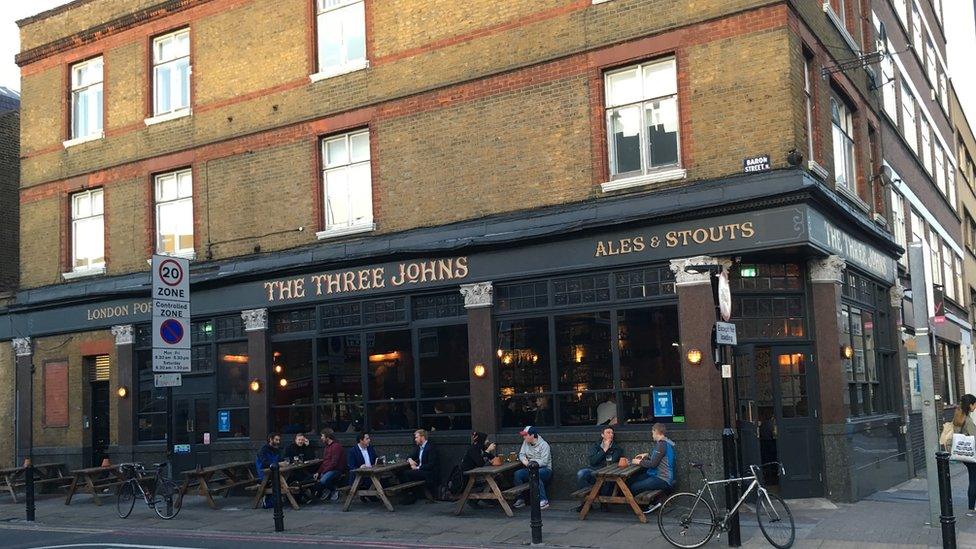
- Published30 June 2017
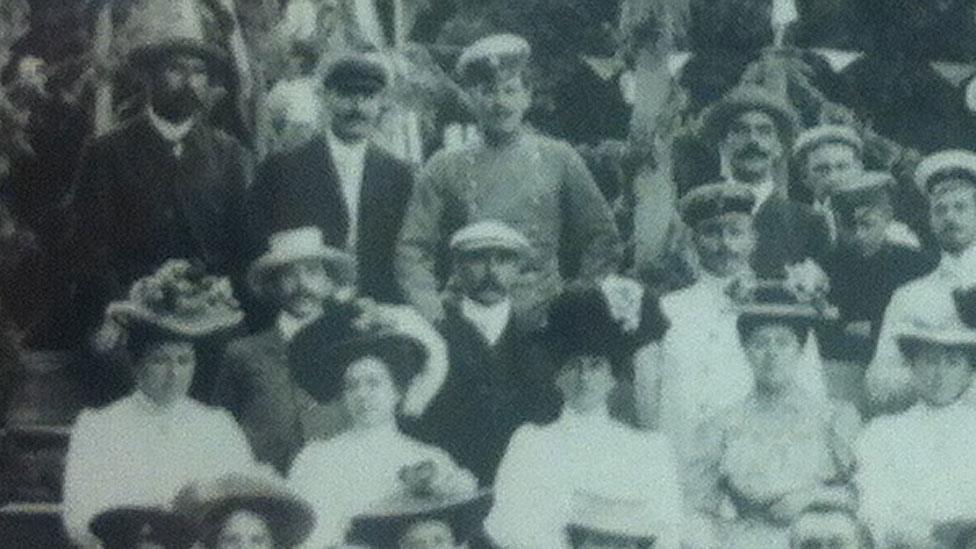
- Published12 September 2017
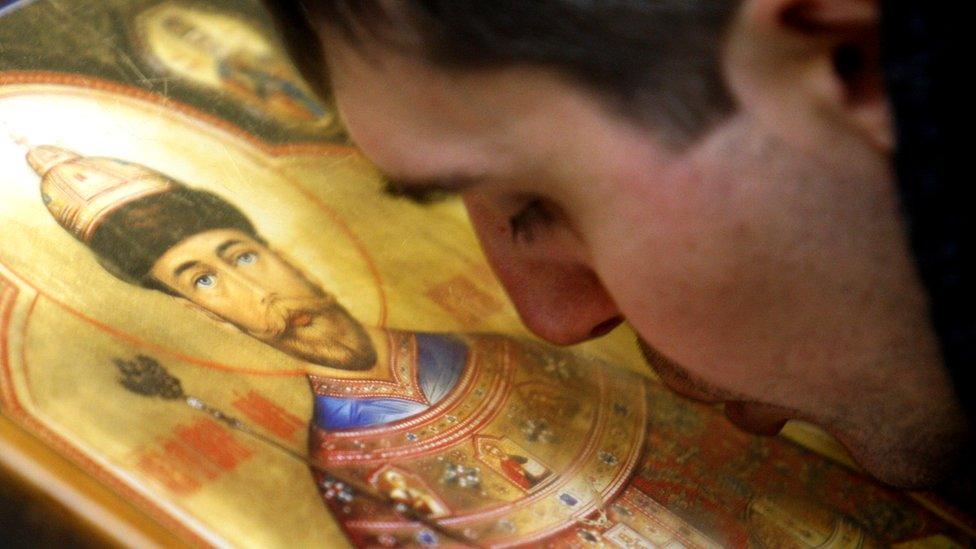
- Published2 March 2017
